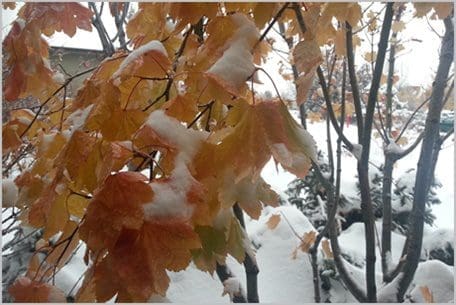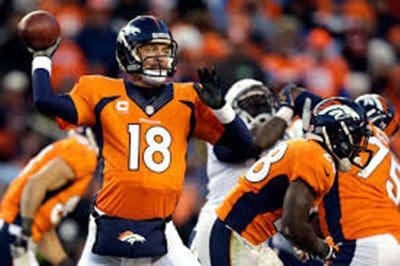It’s wintumn here in central Oregon, wintumn being that time of year when winter snow clings to autumn color.
Daughter Summer and I continue keeping Hubby company on this last phase of his cancer journey – listening to him breathe, massaging his feet with coconut oil, swabbing mouth and lips, reading out loud to him, stroking his forehead, the soothing background sound of football on TV.
There have been moments of stress, but mostly we continue to be swathed in unexplainable peace. One not-so-peaceful moment was realizing that for the third weekend in a row, Seattle—and not Denver—is being televised. What? Do they think there are no west coast people who would rather watch a Broncos game? But I digress.
Photo credit: not me
I was re-reading something Donald Miller wrote about Job – that ancient story of the man who lost his health, his wealth and his children all within a short period of time after which his wife tells him he ought to curse God and die. In his book, A Million Miles in a Thousand Years, Miller writes:
Job calls out to God, asking why God would let this happen. God does not answer Job’s question. … Instead, he appears to Job in a whirlwind and asks if Job knows who stops the waves on the shore, or stores the snow in Wichita every winter. He asks Job who manages the constellations that reel through the night sky. And that is essentially all God says to Job. God doesn’t explain pain philosophically or even list its benefits. God says to Job, Job, I know what I’m doing, and this whole thing isn’t about you. … Job found contentment and even joy outside the context of comfort, health or stability. He understood the story was not about him, and he cared more about the story than he did about himself.
This perspective on Job’s story consequently explains everyone’s story. Including Hubby’s and my love story. Bottom line, it’s not about us.



Leave a Reply